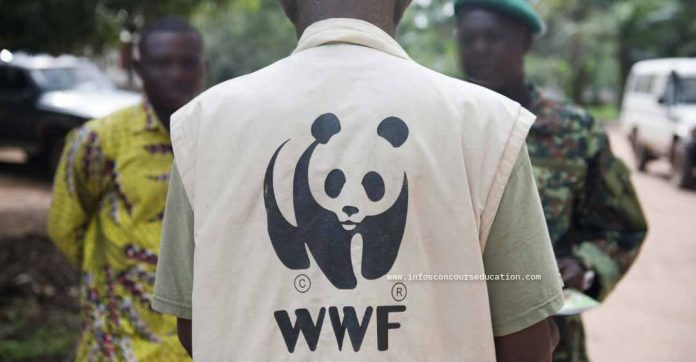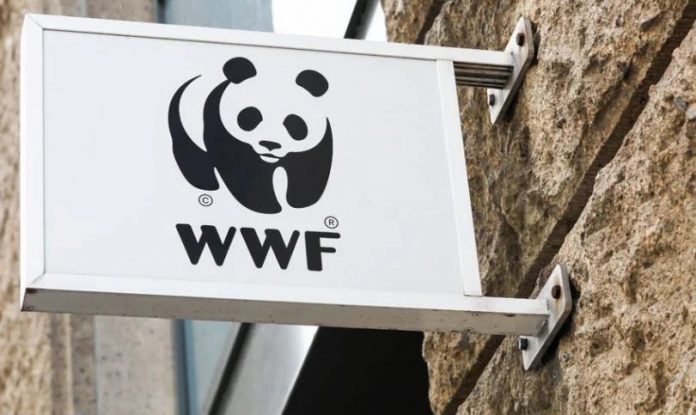Required Qualifications
- Minimum of 10 years’ experience in anti-poaching efforts, along with expertise in national, regional, and international policy advocacy, including high-level political negotiations. Experience in a Central African context is highly preferred.
- A Master’s degree in Wildlife Management or a Bachelor’s degree with a Diploma in Environmental Crime or Environmental Law.
- Proven ability to implement field-based anti-poaching initiatives and achieve high-level policy outcomes.
- Strong knowledge of law enforcement, anti-poaching strategies, and the landscape of wildlife crime in Central Africa, alongside familiarity with political and policy-making processes in the region.
- Extensive experience in nature conservation, with an understanding of biodiversity policy trends and how effective law enforcement can reduce poaching of critically endangered species.
Department Mission
The role provides global expertise to the WWF’s Biodiversity Practice (BP), focusing on Outcome 2 – Preventing Overexploitation, which is achieved through the Wildlife Crime Area of Collective Action and Innovation (ACAI). The Biodiversity Practice aims to ensure that the world’s most iconic and endangered species are safeguarded and thriving in the wild. This position will collaborate closely with WWF’s Wildlife Crime ACAI and lead the Wildlife Crime Hub in the Congo Basin, a joint effort by WWF and TRAFFIC to implement biodiversity outcomes in Central Africa.
Key Responsibilities
As the leader of this position, you will be responsible for the following key areas:
A. Coordination, Policy Advocacy, and Partnership Building
- Ensure alignment and collaboration with Regional Hubs, TRAFFIC, and the WWF Network, particularly with the Biodiversity Practice Core Team, Ethical Law Enforcement, and WC ACAI Coordinator.
- Establish and maintain partnerships with national and international organizations to coordinate regional policy and advocacy efforts, including involvement in CITES and UNCAC.
- Lead the rollout of the Zero-Poaching Framework in Central Africa, partnering with governments and NGOs to promote this initiative regionally.
- Facilitate learning and knowledge sharing at the inter-country, inter-regional, and international levels to accelerate the adoption of proven approaches and tools.
B. Site-Based Enforcement
- Oversee the development and execution of priority anti-poaching activities within the Zero Poaching framework in Central Africa. This includes promoting the national adoption of innovative tools and technologies.
- Lead community-based crime prevention efforts, collaborating with key stakeholders such as INTERPOL for Law Enforcement Monitoring (LEM) activities across critical landscapes.
- Supervise anti-poaching and ethical law enforcement projects in transboundary areas, focusing on regions like TNS, TRIDOM, and Lac Tumba/Mai Ndombe.
C. Ranger Welfare
- Support the development of quality ranger training institutions in Central Africa by partnering with global experts and implementing best practices.
- Represent WWF Central Africa in global and regional platforms such as IRF and GRAA on ranger-related matters.
D. Intelligence-Led Enforcement
- Collaborate with TRAFFIC to promote intelligence-led enforcement in Central Africa’s priority landscapes.
- Oversee the integration of SMART and i2 databases for proactive law enforcement efforts.
- Support the development and rollout of ethical law enforcement guidelines, ensuring effective judicial follow-up on wildlife cases.
- Provide expertise in investigating ranger conduct and addressing human rights allegations tied to law enforcement activities.
E. Program Development and Monitoring
- Offer technical expertise in fundraising for WWF and TRAFFIC wildlife crime projects.
- Coordinate the monitoring of the Zero Poaching initiative’s impact and progress.
- Promote capacity building and facilitate knowledge sharing on new technologies.
- Enhance the visibility of Hub activities through internal and external communications.
F. Data Analysis, Reporting, and Monitoring
- Collaborate with TRAFFIC focal points to standardize planning and monitoring frameworks to ensure coordination and capture WWF/TRAFFIC activities in the Congo Basin region.
- Consolidate and report annual achievements to relevant WWF and TRAFFIC stakeholders, ensuring alignment with the global wildlife crime community.
G. Fundraising and Donor Engagement
- Lead and support fundraising efforts at the regional and national levels, identifying potential donor agencies and partners for WWF and TRAFFIC projects in the wildlife crime sector.
H. Capacity Building
- Facilitate internal and external capacity-building initiatives, focusing on new technologies relevant to anti-poaching and wildlife trafficking.
- Promote best practices for ranger conduct and strengthen the capacities of local enforcement teams.
I. Communications
- Ensure visibility of Hub activities by working with the TRAFFIC focal point and WWF’s communications team.
- Identify key communication messages and target audiences based on the Hub’s work, providing regular updates from the field for use in social media and other communication platforms.





